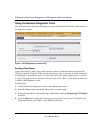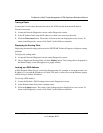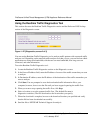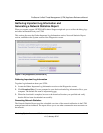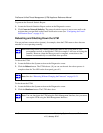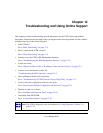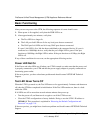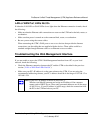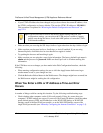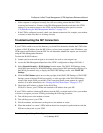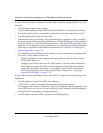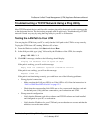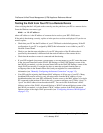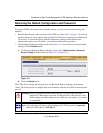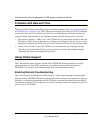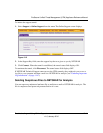
ProSecure Unified Threat Management (UTM) Appliance Reference Manual
12-4 Troubleshooting and Using Online Support
v1.0, January 2010
• If your UTM’s IP address has been changed and you do not know the current IP address, clear
the UTM’s configuration to factory defaults. This sets the UTM’s IP address to 192.168.1.1.
This procedure is explained in “Restoring the Default Configuration and Password” on
page 12-9.
• Make sure that you are using the SSL https://address login rather than the http://address login.
• Make sure that your browser has Java, JavaScript, or ActiveX enabled. If you are using
Internet Explorer, click Refresh to be sure that the Java applet is loaded.
• Try quitting the browser and launching it again.
• Make sure that you are using the correct login information. The factory default login name is
admin and the password is password. Make sure that Caps Lock is off when entering this
information.
If the UTM does not save changes you have made in the Web Configuration Interface, check the
following:
• When entering configuration settings, be sure to click the Apply button before moving to
another menu or tab, or your changes are lost.
• Click the Refresh or Reload button in the Web browser. The changes might have occurred, but
the Web browser might be caching the old configuration.
When You Enter a URL or IP Address a Time-out Error
Occurs
A number of things could be causing this situation. Try the following troubleshooting steps.
• Check whether other computers on the LAN work properly. If they do, ensure that your
computer’s TCP/IP settings are correct. If you use a fixed (static) IP address, check the subnet
mask, default gateway, DNS, and IP addresses on the WAN1 ISP Settings or WAN2 ISP
Settings screen of the dual-WAN port models, or on the WAN ISP Settings screen of the
single-WAN port models (see “Manually Configuring the Internet Connection” on page 3-5).
Tip: If you do not want to revert to the factory default settings and lose your
configuration settings, you can reboot the UTM and use a sniffer to capture
packets sent during the reboot. Look at the ARP packets to locate the UTM’s
LAN interface address.



